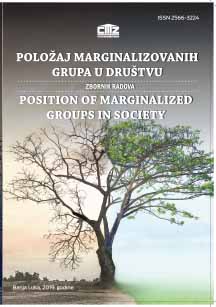POSLJEDICE EKONOMSKE KRIZE MJERENE INDIKATORIMA SIROMAŠTVA U BIH
ECONOMIC CRISIS CONSEQUENCES MEASURED WITH POVERTY INDICATORS IN B&H
Author(s): Wilhelm Vitomir GajićSubject(s): Social Sciences, Economy, Sociology, Social development, Economic development, Social Norms / Social Control, Sociology of Politics, Socio-Economic Research
Published by: CENTAR MODERNIH ZNANJA
Keywords: crisis; personal consumption; business activity; poverty;
Summary/Abstract: The impact of the general economic crisis, the imbalance in the unfavorable business environment in BiH, and the internal weaknesses of the enterprise, have resulted in a reduction in the volume of business activities that have linked a number of other negative business-related consequences to poverty growth . As with most other transition economies, the main channels of crisis were the sharp contraction of capital inflows and the reduction of demand for exports. Reducing capital inflows has reflected a fall in investment spending, while reducing personal spending is the result of increased unemployment. Businesses faced with falling demand for their products on domestic and foreign markets reduced their investments. Employers who had free money, for fear and uncertainty, did not want to invest, while those who wanted to invest and did not have their own funds could not get loans because of the sharp credit contraction in the financial markets. The direct consequence of insufficient demand was the reduction in the number of jobs that ultimately had an impact on the growth of poverty. Reducing business resulted in a fall in revenues, an increase in the number of enterprises with negative business results, an increase in the number of enterprises that were forced to stop business activities, and ultimately an increase in unemployment.
Journal: DRUŠTVENE DEVIJACIJE
- Issue Year: IV/2019
- Issue No: 4
- Page Range: 462-471
- Page Count: 10
- Language: Serbian

